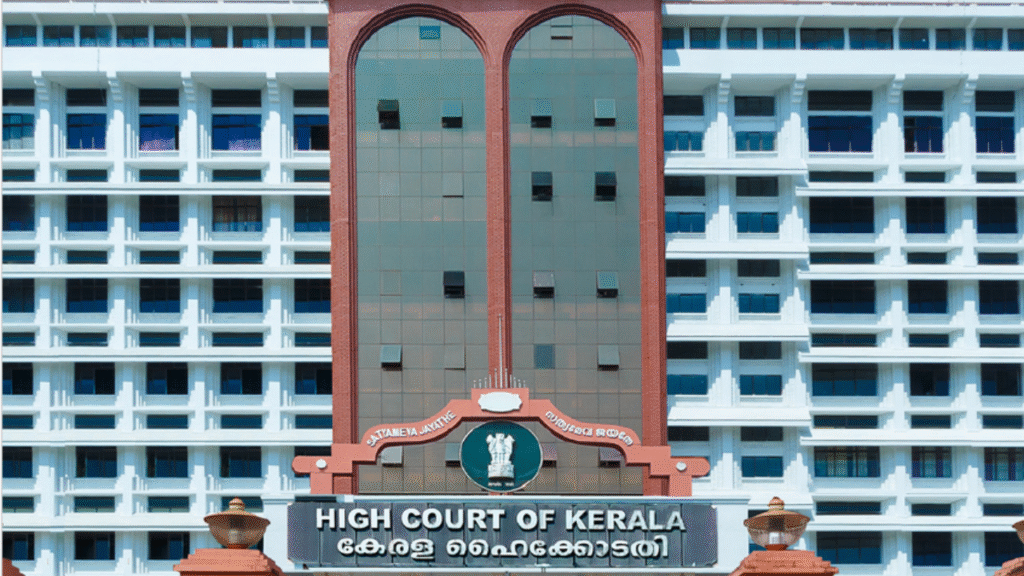INDIAN CONTRACT ACT, 1872 – SECTION 74 – AGREEMENT FOR SALE – EARNEST MONEY – FORFEITURE – COMPENSATION FOR BREACH OF CONTRACT – REFUND OF ADVANCE AMOUNT.
(2025) 7 KCD 283 : 2025 KER 55443
IN THE HIGH COURT OF KERALA
THE HONOURABLE MR. JUSTICE C.PRATHEEP KUMAR
R.F.A. NO. 477 OF 2016; 28 JULY, 2025
Facts: The plaintiff (respondent) filed a suit (O.S.334/2011) for specific performance of an agreement for sale of property, having paid an advance of Rs. 10,00,000/-. The agreement stipulated performance by 15.09.2009, later extended to 31.12.2009. The defendants (appellants) denied executing the agreement, asserting that the plaintiff defaulted, leading them to cancel the agreement and forfeit the earnest money. The trial court found the plaintiff committed the breach of contract and denied specific performance but directed the defendants to return Rs. 10,00,000/- with 12% interest per annum. The defendants appealed, arguing the amount was earnest money and thus forfeitable.
Issue: Whether the defendants were entitled to forfeit the Rs. 10,00,000/- received as earnest money, especially when no loss or damage was sustained due to the plaintiff’s breach, and whether the trial court’s order for return of the amount and interest rate was justified.
Held:
Nature of Payment: The court noted that while the initial sums (Rs. 3,00,000/- and Rs. 7,00,000/-) were termed “earnest money” in Ext.A1, subsequent endorsements showed further payments as “part of sale consideration,” suggesting the Rs. 10,00,000/- was also part of the sale consideration.
Applicability of Section 74: Under Section 74 of the Indian Contract Act, compensation for breach of contract, even if a sum is named as liquidated damages or penalty, is limited to “reasonable compensation”. Damage or loss caused is a sine qua non for the applicability of Section 74. While proof of actual damage is not always dispensed with, it is particularly relevant where such proof is possible. Section 74 applies to forfeiture of earnest money under a contract.
Forfeiture of Earnest Money – Principle: Forfeiture of earnest money is allowed only if it is a genuine pre-estimate of damages fixed by both parties and found reasonable by the court. The party complaining of breach must prove actual damage or loss to be entitled to forfeit the amount.
Gain by Vendor: Where the vendor has not suffered any loss but has actually gained (e.g., due to an increase in the value of the land after the sale agreement), forfeiture of earnest money should not be allowed.
Application to the Case: The High Court found that the defendants did not sustain any loss; instead, they benefited from the non-performance of the agreement due to the considerable increase in property value over time. The Rs. 10,00,000/- was also in the defendants’ possession since 2008.
Conclusion on Forfeiture: Since the defendants failed to prove any loss and actually gained, they were not entitled to forfeit the Rs. 10,00,000/- received from the plaintiff.
Interest Rate Modification: Considering that the plaintiff committed the breach of contract, the trial court’s awarded interest rate of 12% per annum was deemed too high. The High Court modified it to a uniform rate of 8% per annum from the date of the suit till deposit/payment.
Decision: The appeal was disposed of, affirming the trial court’s judgment directing the return of Rs. 10,00,000/- to the plaintiff, but reducing the interest rate to 8% per annum from the date of the suit till deposit/payment.

